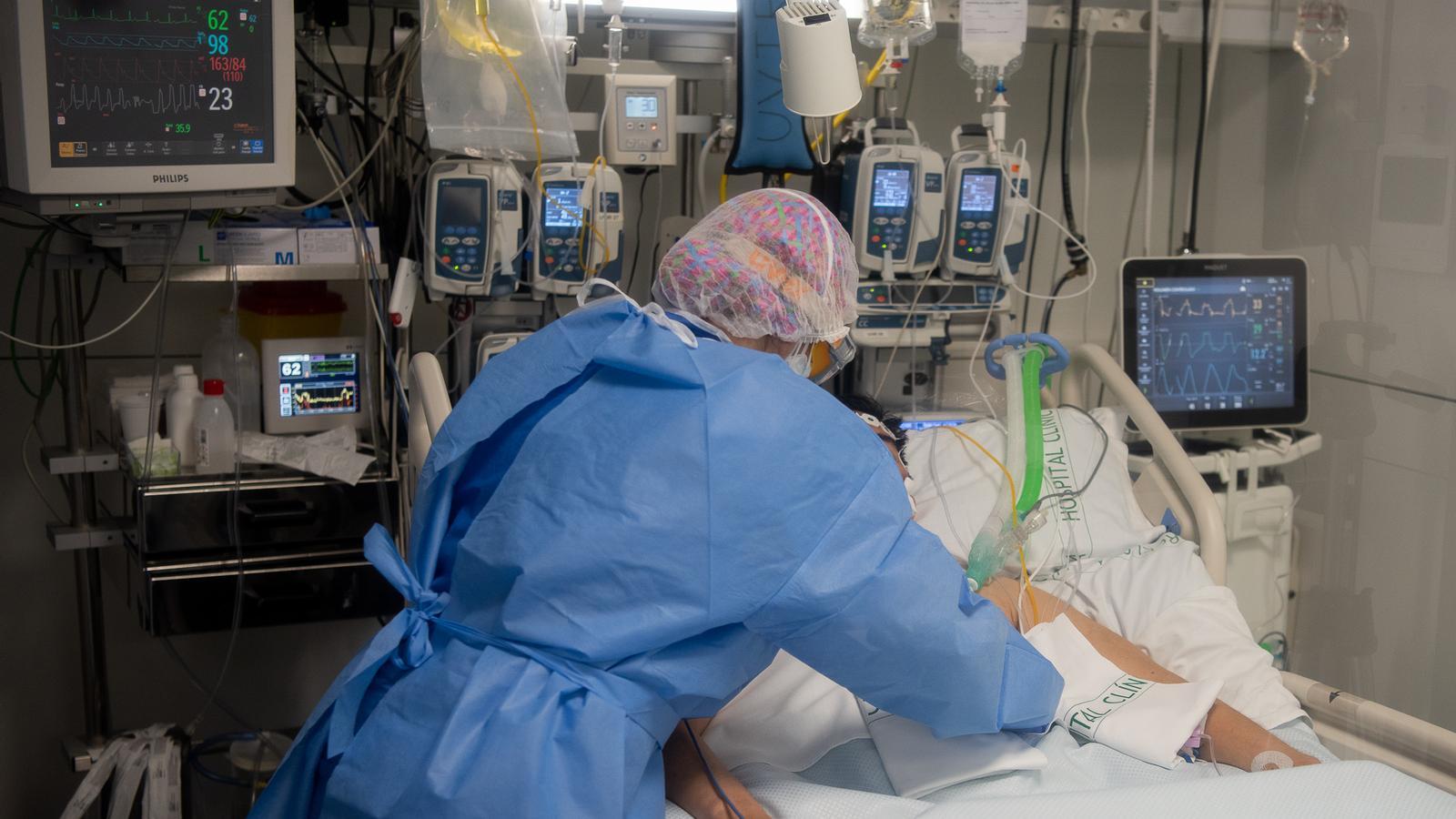"We're late": health workers call for tougher measures to curb fifth wave
City councils ask for "clarity" from Government and criticise they are left to enforce "informal curfew" alone


BarcelonaThe new restrictions that the Government wants to impose, among which there is a general closure of activities at 00.30 h and a ten-person limit on gatherings (if approved by the courts) do not convince health professionals. Several professionals have used Twitter as a loudspeaker to criticise measures that, they say, come late and will not stop the advance of the fifth wave. "We are moving towards 80 covid patients, all serious, with bilateral pneumonia and mostly young. This is very similar to the third wave but 30 years younger on average. It's terrible, we are really late!", lamented the head of the service of infectious diseases and coordinator of covid hospitalisations at Hospital del Mar, Robert Güerri.
The president of the College of Physicians of Barcelona (COMB), Jaume Padrós, also believes restrictions will end up being "insufficient" due to the explosion in contagion around the country. Although he has appealed to the individual responsibility and administrations to contain this outbreak of unprecedented magnitude during the seventeen months of pandemic, he stated that there are "many events part of town festivals that should not be held now" because they involve crowds and less surveillance, and yet they are not mentioned in the measures.
The containment measures come after weeks of an exponential growth in cases. Primary care was the first to receive the blow with the diagnosis of thousands of infections a week and the monitoring of between 6 and 9 close contacts for each positive. Now, however, the pressure on care is no longer concentrated only in the first level of care, but is affecting hospitals too, especially A&E and the semi-critical patient area.
The head of epidemiology and preventive medicine of the Hospital Clínic, Antoni Trilla, admitted this Wednesday in an interview with ARA that the epidemiological evolution is beginning to destabilise health centers - only at the Hospital Clinic, consultations have doubled in a matter of days - but described the Catalan government's actions as "brave" in "trying to balance social and economic life with the spike in cases".
In Catalan hospitals there are 1,058 covid patients admitted and 209 in ICUs, many of whom are young people who are not vaccinated or who have only received one dose. The Minister of Health, Josep Maria Argimon, warned yesterday that a third of those admitted to hospital and one in four patients in serious or critical condition in Catalonia are under 40. "We continue to open new covid wards almost every day and we already have five without counting ICU," warns Carol Garcia-Vidal, infectious disease specialist at the Hospital Clinic, who regrets that with the epidemiological and care situation that large health centres are beginning to experience, "there haven't been tougher measures" to stop the fifth wave.
At the same time, however, Padrós has criticised that the capacity to ICU is "the only criterion" to make political decisions and has asked for "maximum understanding" with primary care, which "in some cases is bordering on collapse". The president of the Catalan Society of Family and Community Medicine (CAMFIC), Antoni Sisó, has also pointed out to Catalunya Ràdio that perhaps "more aggressive" restrictions will be necessary and that he is in favour of applying a night curfew, as well as increasing teleworking.
Colau: "If we have to close the beaches, we want to know how to do it"
The criticism to the package of new restrictions - still not in force because it is waiting for approval from Catalonia's High Court - not only comes from the health sector. City councils, especially councils in Barcelona metropolitan area, said on Monday that the Government was not clear enough with its intentions, and also accuses the executive of leaving the epidemiological control exclusively in their hands.
This was expressed by the mayor of Barcelona, Ada Colau, who has criticised that a kind of "informal curfew" is being approved and the responsibility to control it has been transferred to councils when "they do not have enough means" to enforce it. "Recommendations, with a tired and hypersensitive citizenship, are bound to lead to ambiguity", Colau affirmed on Catalunya Ràdio, and added: "If we have to close the beaches, we want to know how we do it. If we don't ask for a curfew, we want the Generalitat to make it clear what can and can't be done." Colau has also warned that she will ask for more presence of the Mossos to enforce the restrictions.
Her counterpart in Badalona, Xavier Garcia Albiol, has described as "irresponsible" the Government's request to municipalities because they restrict access to public spaces at night and said that, without a curfew, this measure is "impossible" to enforce. For this reason, Albiol has asked the Generalitat to be "courageous" and urged it to decree the curfew. "Otherwise the measure [closed beaches and parks after 00.30 h] is literally impossible," he wrote on Twitter.
